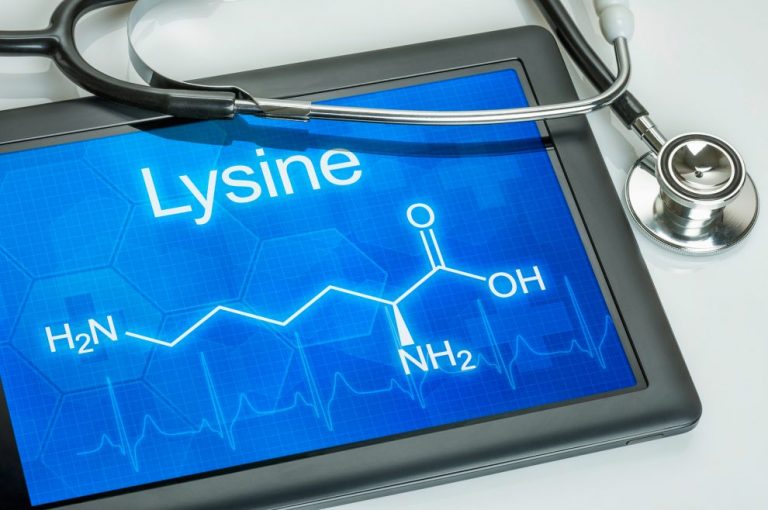Lysine is an amino acid belongs to the group of exogenous amino acids, that is, those that we must provide from the outside, because the body itself is unable to produce them. Its presence in the body is extremely important, which is why its level is so important. Some people need only a proper diet, others supplement. The second group will certainly include athletes, vegans, people who work physically, people who use different types of diets.
The action of lysine
This amino acid plays many functions in the body, thus playing an extremely important role. It is lysine that facilitates the absorption of calcium from the small intestine by participating in the formation of bones and muscles and in tissue regeneration. It is part of the blood plasma proteins and is a component of many proteins that form antibodies, enzymes and hormones. Lysine acts as an antioxidant, supports ovaries and is essential for proper lactation. It is this amino acid that is needed for the synthesis of nucleotides or for lipid metabolism. It works well in the treatment of herpes because it inhibits the absorption of arginine. It increases muscle mass, strengthens blood vessels, is ideal for immunity while perfectly cope with colds and flu.
The dosage of lysine
The basis is, of course, a proper diet, which every person should pay attention to, and people actively spending time and training in particular. Lysine is found in the largest quantities in eggs, fish, cheese, milk, curd and poultry. We can also find it in wholemeal bread, in pumpkin seeds, in legumes, in parsley, buckwheat, for example in the liver and in red meat.
When it comes to people who need supplementation with this amino acid. The body needs about 8 grams per day or 12 mg per kilogram. How much a person needs them is therefore primarily dependent on the diet and how much it is able to adopt through appropriate products. They usually come in the form of capsules or tablets.
In patients who are ill or older, lysine deficiency may occur, which is manifested, among other things, by muscle atrophy, bone descaling, extreme fatigue, difficulty concentrating, dizziness, anemia. Due to the fact that it participates in bone building, it can lead to deficits in growth in children and adolescents. If someone in turn takes it in the form of tablets more than the recommended dose then diarrhea may occur, abdominal pain and clearly deficiencies of arginine.
Studies confirming the effectiveness of lysine
Thanks to the recent research, the results showed that lysine influences the prevention and spread of cancer, as well as the formation of metastases. It is also effective in the fight against herpes. Other studies have confirmed that the appropriate level of lysine affects the prevention of osteoporosis, because it allows the removal of excess lead from the body, which is largely the culprit of this disease. Another conclusion arising from the research is that lysine plays an important role in the treatment of heart disease and blood circulation, in stimulating the brain to work, improving concentration, or increasing energy for the body.
Lysine also has a huge impact on building our immunity. As everyone knows, there are certain moments in life in which this level of resistance is significantly reduced. If a cold or flu meets with us and we have to take medication, especially antibiotics, restoring immunity should not be easy. Lysine is doing great with it. Thanks to it, the production of antibodies and enzymes that control the work of the immune system increases.






